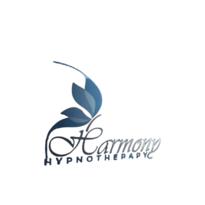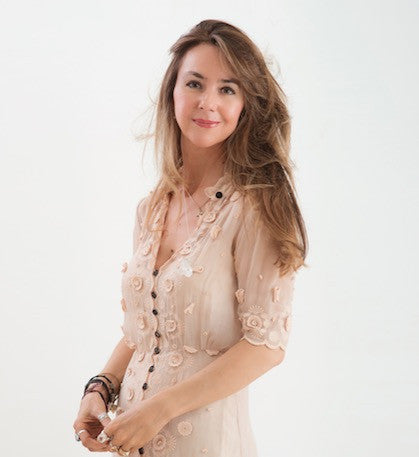How Healing Emotional Wounds Can Change Your Life

In the midst of a global pandemic many of us have found ourselves isolated - or unable to escape a confronting reality. Unresolved emotional wounds can surface and become more prevalent than ever. How do we heal these emotional wounds?
It’s interesting to note that the reason why we are able to deny the existence of emotional wounds is because they often lie deeply imbedded in our unconscious mind. Therefore, on an everyday basis, at the conscious level, we are unaware of their existence. However, that doesn’t meant they don’t exist.
We all accept the fact that when we injure ourselves physically we expect to take the time and effort required to assist and support our body through the healing process. For example, if we break our leg we go to a surgeon who aligns the bones, puts our leg in a plaster cast and we then we rest our leg to give it time to heal gradually. We certainly do not expect to run a marathon the next day.
However, when it comes to emotional wounds we expect them to just go away. Unfortunately they don’t.
Emotional wounds that are not properly healed fester just as physical wounds would. They morph and grow and commonly manifest in such things as anxiety, lack of confidence or self-worth, addiction, negative self-talk, emotional blocks, lack of motivation, fears, phobias, a deep sense of inadequacy or not feeling good enough, intimacy issues or overly controlling behaviour.
I describe all of these things as a state of un-ease.
Because our body and mind are interconnected, the reality is if we hold onto a state of un-ease, such as anxiety, long enough, it will eventually accumulate in our body and cause dis-ease.
We seem to overlook many basic principles in our busy western culture. For example, we understand that assaulting a person on the street is a criminal offence – and there’s a reason for this: assault is damaging and harmful. However, we think if we were assaulted as children, that’s okay – that’s just what happened. Well not only is it not okay, but any child that is assaulted is seriously wounded and damaged – not just at the physical level but at a deeply emotional level.
Additionally, if the assault was committed by a parent or carer, the damage is much more severe than if we were assaulted by a stranger on the street because firstly we’ve been injured by the person that’s supposed to protect us and secondly they are much bigger than us. Thus we have no defence and no protection. As a child we also have no understanding.
It’s for this reason that I see people every week who are still crying in their thirties, forties, fifties, sixties and seventies over unresolved childhood wounds: emotional wounds.
The good news is when we address past emotional wounds and when we know how to heal them, we can heal them profoundly.
Then we become a completely different person – unencumbered by the damage of our past. We literally set ourselves free and it’s a wonderful process to be part of and see.
It’s important to understand that emotional wounds cannot be healed consciously. No amount of talk therapy will set us free, not matter how committed we may be and no matter how talented our therapist may be. This is because, as stated earlier, past emotional wounds and damage lies deeply embedded in our unconscious mind. In fact, consciously we often have no idea what they are and where they came from.
For this reason, healing at the emotional level is something we need to do through the unconscious body mind work, using combinations of therapy that tap into this deeper fundamental part of us such as hypnotherapy and other supporting unconscious methods and modalities.
When they are healed unconsciously it’s an incredible process, just as most unconscious processes are. They simply dissipate – and they never return. The changes are profound and can be felt instantly. We feel as if a huge weight has been lifted and we’ve been set free. And this is because that’s literally what has happened.
I guess when you understand the unconscious mind and how it works, this is hardly surprising. We are dealing with the part of you that allows your organs to function, your heart to beat, your blood to flow. This is the part of you that brings the sperm and egg together, that naturally prompts your blood to clot when you graze your knee – this is the part of you that allows you to survive and thrive on every level, emotionally and physically.
We seriously underestimate the power of the power within us all.
Being privileged enough to witness profound and instant healing every day of my life brings with it a certain heaviness and sadness. A realisation that people live with unnecessary deeply rooted blocks to their joy is sad. So many have missed the opportunity to expand their lives in wonderful ways when they didn’t need to. Too many become reliant on medication when they could overcome these blocks quickly, easily and naturally.
The great understanding to take away from this is:
- We can heal from inside out.
- Healing emotional wounds is natural.
- Like a snake shedding its skin, it’s permanent.
- Our body/mind interconnectedness means we can heal physical things emotionally.
- Unconsciously we are driven to heal and thrive.
- A state of un-ease can be a great catalyst for our healing.
- “Bad” feelings are often our body telling us what needs healing.
Sam Makhoul from A Higher Branch tells his story of how his chronic hip pain simply dissolved and never came back – through unconscious emotional healing. You can listen to it through his “Best Of” Spotify Episode here (starts around 12.5 minutes in). He had tried everything – physiotherapy, osteopathy, and a whole variety of other modalities and nothing had worked. It had even been suggested that he need surgery. However, when his unconscious mind healed, he stood up astounded – within a couple of hours he was pain free: instantly and permanently.
Our bodies hold onto emotional damage in strange and often surprising ways.
Countless examples of the body/mind interconnection spring to mind over my years in practice. Some of my favourites though are:
- A doctor who felt their head was disconnected from their body their entire life – until their abandonment as a small baby wound was healed.
- A pilot who had blurred vision after a laser was accidentally shone in his eyes. It was constant for over 15 months – until his unconscious mind literally gave him clear vision through a deep emotional healing. We never consciously knew what it was.
- A mother in her fifties who suddenly developed debilitating knee pain which not even surgery could resolve – until the wounds of her abusive mother throwing a table on her knee at age 6 were healed.
We all have a profound ability to heal at the deepest level imaginable – and to change our lives in the most wonderful and profound ways.
I wonder, could our new or current reality be a blessing in disguise – a way to bring about the healing we need, the healing we’ve managed to put aside or avoid most of our lives?

Disclaimer. Lyn Megan Macpherson is not a medical doctor, psychologist or psychiatrist, and does not claim to be one. She therefore holds no legal liability for the choices of readers who are encouraged to make informed decisions and seek medical advice if required.
Leave a comment
Comments will be approved before showing up.





Lyn Macpherson
Author